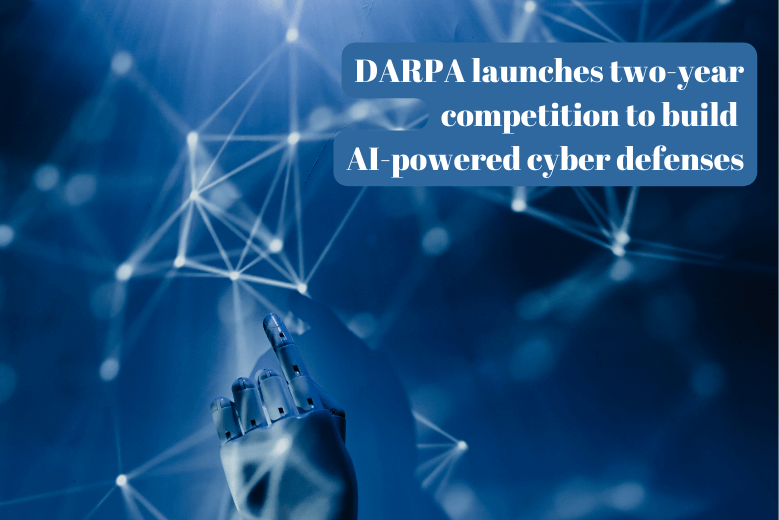In the ever-evolving digital landscape, where cyber threats continue to grow every day, the need for innovative solutions to defend computer networks has been completely pressing. The Defense Advanced Research Projects Agency has taken a great step forward by launching the cyber grand challenge that looks forward to making the most of the artificial intelligence power in fortifying your cyber defenses. The two-year $10 million prize competition is likely to push the boundaries of artificial intelligence research and development with the ultimate objective of creating autonomous systems capable of detecting or responding to cyber attacks.
How Is The Cyber Grand Challenge Working?
At the heart of the cyber grand challenge is the content that pits the teams of researchers against each other in a virtual background of simulated cyberattacks. The competing teams will face the monumental task of designing or building AI systems that can automatically detect and respond to these stimulated cyber threats. The true test of the previous goes in the ability to defend the computer networks. The team that can safely safeguard the network against the most sophisticated cyber attacks can win the prize. This also represents a shift from typical cybersecurity competitions, which include human experts like you detecting and responding to predefined attacks. Instead, the challenge is to push the boundaries of automation, and you can expect systems that can automatically adapt to new and evolving threats ensuring that your defense system remains strong in the face of these cyber landscape changes.
Challenges Of AI-Powered Cyber Defence
The pursuit of AI-powered cyber defense has challenges, and these challenges_the are important to the cyber grand challenge. The dynamic nature of cyber-attacks and constantly evolving techniques and strategies pose a major hurdle. To be effective, you need to ensure that the AI systems possess the ability to learn and adapt, staying one step ahead of the cyber adversaries who are constantly innovating new things. This necessitates the development of models which can rapidly assimilate some new information and also update the strategies to counter all emerging threats.
Additionally, you need to know that cyber-attacks are multifaceted, often exploiting the vulnerabilities in the software that might not have been identified by you earlier. You must know that the AI systems must be able to understand the nuisances of these attacks recognizing the patterns or animalities that might escape the notice of any typical defenses.
Real-time response is another challenge that you should know about. Cyber attacks can strike seamlessly, exploiting weaknesses or causing significant damage before you react. The AI systems must be well equipped to swiftly identify or patch vulnerabilities reducing the window of any opportunity for malicious actors.
The Potential Benefits Of AI-Powered Cyber Defence
The visionary objective of the cyber grand challenge is not just to tackle any of the challenges but to unlock the great potential of AI-powered cyber defense. The first step, you can just imagine a future where AI systems operate at machine speed with great accuracy and can also detect and respond to cyber attacks instantly. This capacity can change your cybersecurity landscape to override the extent of minimizing the impact of cyber attacks on your organization or even your country.
The efficiencies gained from AI automation again help you free up your mind to focus on higher-level strategic work, such as devising innovative defense strategies or understanding emerging trends in cyber warfare and developing great solutions to previously unsolvable problems.
Acceleration Of Innovation
You must know that CGC has the potential to improve innovation in the cybersecurity field. As you compete to develop the most advanced AI systems for defending against cyber attacks, they will surely devise novel approaches or techniques. This knowledge and advancements generated during the competition can be shared with the community, and it can help you collaborate with other defensive capabilities.
Minimum Human Errors
Human errors remain a major factor in successful cyber attacks. Even skilled experts can make mistakes and ignore vulnerabilities. But you don’t need to worry at all as AI power defense systems operate with consistency and also align with the predefined protocols reducing the likelihood of human-induced errors that attackers can ignore.
Constant Learning
The AI systems that are developed by CDC will incorporate machine learning and other adaptive mechanisms. The capability allows you to constantly learn from new cyber threats and also adapt to the strategies accordingly. As the AI systems encounter a huge range of simulated attacks, they can define your responses and also improve the overall effectiveness creating a self-evolving defense infrastructure.
Scaling defenses
As the digital world is expanding, the number of connected devices, one point, or potential side attack vectors also grows. Managing security manually across the vast landscape is a challenging task. But you don’t need to worry at all, as the AI power defense systems can scale seamlessly and provide you protection to plenty of your devices and networks without any type of intervention from your side.
Ethical Considerations
The advancement of AI in cybersecurity also raises important questions ethically. You need to ensure that AI-powered systems are used responsibly, and you should not harm innocent parties. The competition provides a great opportunity for you to address all the ethical concerns fostering discussions on transparency and the responsible deployment of AI in defense strategies.
The DRPA cyber challenge stands as a test attainment to the determination of the global cyber security community. The competition is way beyond just a price pursuit is all about pushing your boundaries of what is possible in the cyber defense world. As AI technologies continue to advance, the promise of adaptive and real-time difference systems also becomes attainable quickly. The outcomes of the CGC have the potential to reshape your cybersecurity landscape, offering you a brighter digital future.
